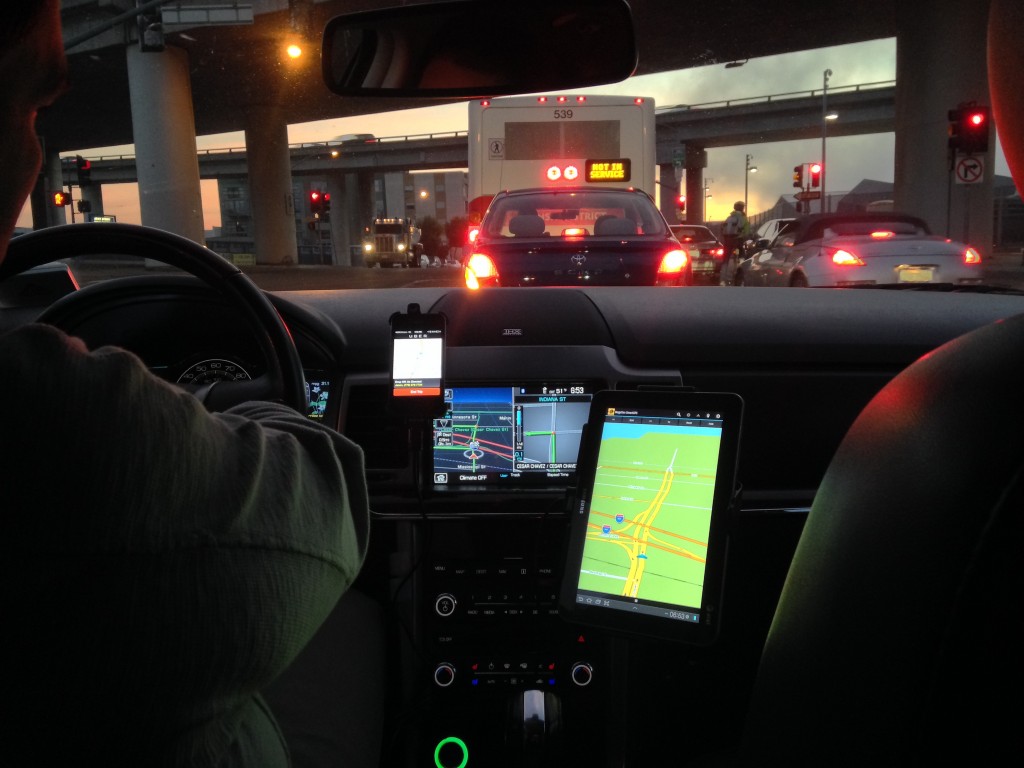
It appears that the hallmark of Gov. Charlie Baker’s inaugural term (or at least his first year) in the Massachusetts State House will be transportation reform. On Friday, April 24, the governor introduced legislation he hopes will better regulate ride-sharing services like Uber, Lyft and other applicable companies.
Called An Act Establishing Department of Public Utilities Oversight of Transportation Network Companies, Gov. Baker’s bill vests Transportation Network Companies (TNCs) oversight authority in the Department of Public Utilities and also establishes measures for obtaining driver background information, receiving annual operational revenue reports, issuing permits and determining insurance requirements.
Just two days ago, Gov. Baker also filed legislation for a MBTA overhaul that he hopes will transform the indebted and embattled public transit agency into a model of best practices and efficiency.
The major points of the bill, which can be read in its entirety here, include the following:
- Cities that issue livery licenses will have access to criminal offender record information to determine an applicant’s suitability
- Any TNC will have to provide annual operating revenue reports at the risk of a penalty that can be determined by the Department of Public Utilities (which will act as TNCs governing body)
- Drivers will be subject to background checks by the TNC
- A TNC’s services must be “consistent with the public interest”
- Pricing for a ride must be clear and straightforward and can be based on recommendations from the DPU
- Vehicles have $1 million in automobile insurance per occurrence
- DPU can revoke a driver’s permit if it receives information that a driver is not suitable to provide TNC service.
Though much of this appears favorable, some peculiar items pertain to a TNC providing operating revenue reports on an annual basis and DPU’s power to revoke a driver’s permit.
One has to wonder why the government requires these reports and possibly suggests Beacon Hill is concerned about how these TNCs are lining their bank accounts.
Perhaps, though, providing this data and potentially making it public will help verify or dispel notions like “Investors are valuing Uber as if it’s bigger than the whole taxi market,” which Uber CEO Travis Kalanick promoted earlier this year.
BostInno reached out to Lyft and Uber about why Gov. Baker might’ve included this stipulation. We’ll update this article upon receiving specific responses, but in the meantime Uber provided us with this general statement:
Governor Baker’s legislation will allow Uber to continue offering Massachusetts safe, reliable transportation options and opportunities to earn a living with greater flexibility. This bill would set into law for the entire industry many of the safety standards that have attracted riders and drivers to ride-sharing, including $1 million of insurance on every ride and rigorous, mandatory background checks for all drivers. We thank Governor Baker and his administration for supporting riders and drivers and for promoting innovation in the Commonwealth.
I also mentioned the DPU’s ability to revoke a driver’s driving permit and TNC certificate, as well as suspend and remove them from service.
A permit, by the way, is a state-issued document qualifying a TNC and/or driver to operate for two years whereas a certificate is TNC-issued document qualifying a driver to operate for a year.
According to the bill, DPU “may order a transportation network company to revoke the permit of a transportation network driver, and to report to the department immediately upon having done so, upon receipt of information indicating that the driver is not suitable to provide transportation network services.”
It’d be more judicious for the legislature to conduct some kind of investigation or examination into the allegations raised against a driver before forcing them to call it quits for an extended period of time.
Sure, drivers can absolutely pose dangerous threats to riders and the next section of the bill says that DPU can order a TNC to revoke a driver’s certificate upon a driver’s arrest for a crime, but the revocation of a permit is at the whim of DPU and has the potential to set up a your-word-vs-mine scenario.

